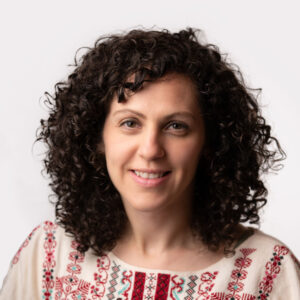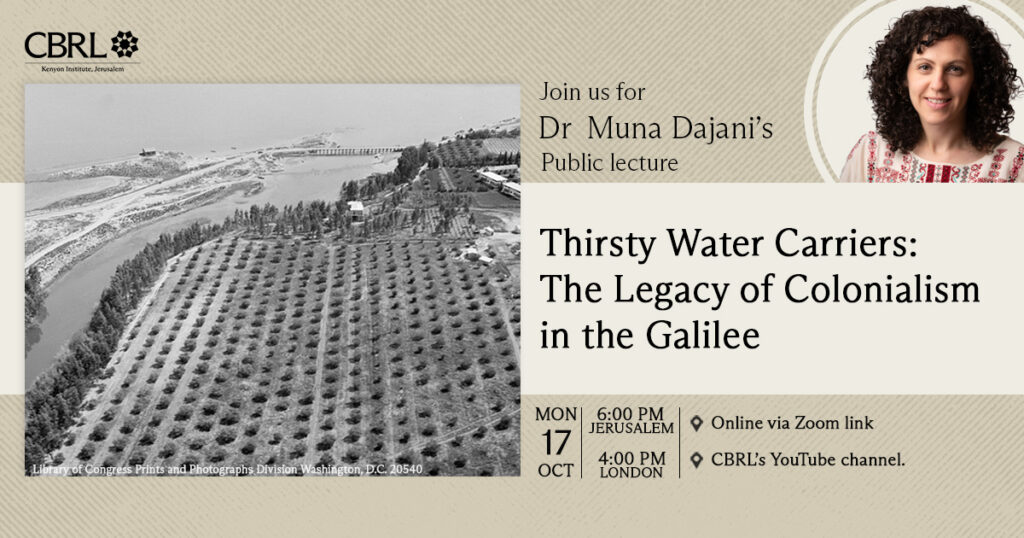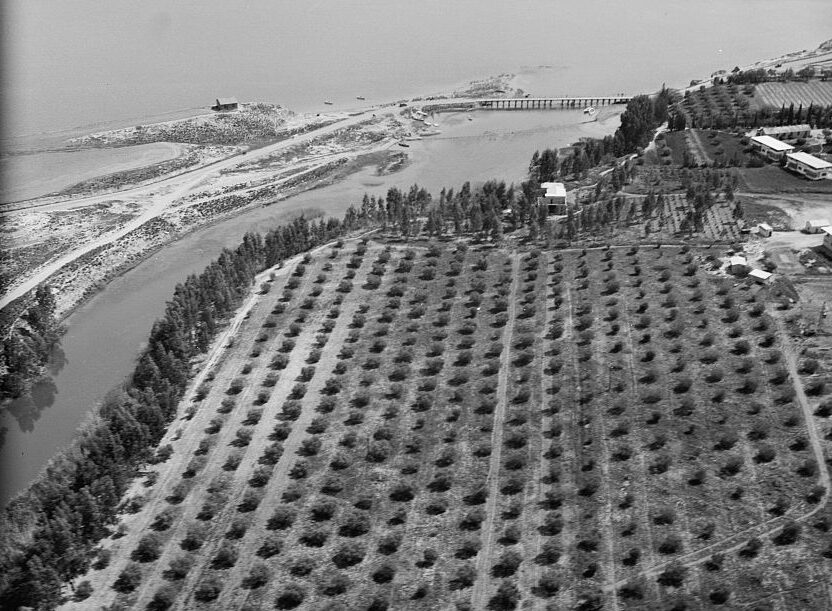In this talk Dr Muna Dajani will look at how a unified watershed governance was devised by external powers, mainly the British and Americans, to construct the water resources of the Jordan River Basin as a unified, apolitical and ‘natural’ watershed. In their attempt to depoliticise the boundaries of the watershed, these forces reinforced a particular worldview that considered natural resources as sites of extractivism and exploitation in the quest for modernity and nation state-building. This resulted in a highly politicised, securitised and dehistoricised conceptualisation of water and its governance. The talk draws on examinations of technical and hydrogeological water availability and use, while also paying attention to ever-changing relations between humans and their environment. It examines how engineers and government representatives engage with water as a resource and sheds light on how ethnographic inquiry into watersheds could challenge the rigidity and banality of scientific conceputalisations and understandings about water and its flows.
This event will take place on Monday 17 October 2022, at 6pm Jerusalem time, 4 pm in the UK.
To register to attend the webinar, please register here.
The event will also be made available on CBRL’s YouTube channel.
This webinar is part of a series events organised by the CBRL Kenyon Institute marking the centenary of the British Mandate in Palestine (1922-1948).
About the speaker:

Dr Muna Dajani holds a PhD from the Department of Geography and Environment at the London School of Economics (LSE). Her research focuses on documenting water struggles in agricultural communities under settler colonialism. She is a Senior Research Associate at the Lancaster Environment Centre (LEC) where she works on the project entitled “Transformations to Groundwater Sustainability” (T2GS) which explores promising grassroots initiatives of holistic groundwater governance, shedding light on traditional and intergenerational skills and knowledges. She has contributed to numerous studies on the hydropolitics of the Jordan and Yarmouk River Basins. She also co-led a collaboration project documenting the untold story of the occupation of the Syrian Golan through developing an online knowledge portal that includes local resources and personal reflections on the collective imaginary of historical events and the popular struggle taking place there.














